...
...

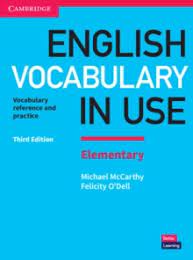
 كلمة جديدة
-
كلمة جديدة
-
 كلمة صعبة
كلمة صعبة

Family words. A family tree for some of Anne and Ivan Sorokin’s relatives or relations. Ivan and Anne and their children. Ivan is Anne’s husband and Karen and Jack’s father. Anne is Ivan’s wife and Karen and Jack’s mother. Anne and Ivan are Karen and Jack’s parents. Karen is Anne and Ivan’s daughter. Jack is their son. Karen is Jack’s sister. Jack is Karen’s brother.
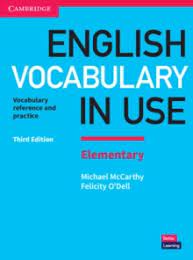
 كلمة جديدة
-
كلمة جديدة
-
 كلمة صعبة
كلمة صعبة

Henry and Diana. Henry is Karen and Jack’s grandfather. Diana is their grandmother. Henry and Diana are Karen and Jack’s grandparents. Karen is Henry and Diana’s granddaughter. Jack is their grandson. .
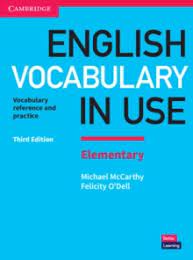
 كلمة جديدة
-
كلمة جديدة
-
 كلمة صعبة
كلمة صعبة

Amelia, George and Meena. George is Karen and Jack’s uncle. Amelia and Meena are Karen and Jack’s aunts. Karen is Amelia, George and Meena’s niece. Jack is their nephew. Kavita and Ravi are Karen and Jack’s cousins.
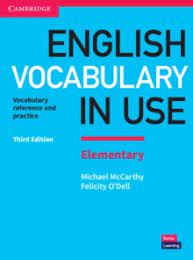
 كلمة جديدة
-
كلمة جديدة
-
 كلمة صعبة
كلمة صعبة

Expressions. Have you got any brothers and sisters? No, I am an only child. Do you come from a big family? Yes, I have three brothers and two sisters.
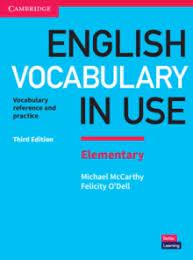
 كلمة جديدة
-
كلمة جديدة
-
 كلمة صعبة
كلمة صعبة

Birth. Anna had a baby yesterday. He was born at 1.15 yesterday morning. He weighed 3 kilograms. They are going to call him John - afer John, his grandfather. His grandfather’s birthday is June 16th too. but he was born in 1957! The baby’s parents were born in 1986. Common mistakes Anna had a baby [NOT Anna got a baby]. He/ She was born [NOT He/ She born or He/ She is born].
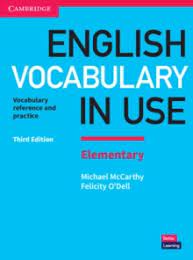
 كلمة جديدة
-
كلمة جديدة
-
 كلمة صعبة
كلمة صعبة

Marriage. If you do not have a partner, you are single. If you have a husband or wife, you are married. If your husband or wife dies, you are widowed. If your marriage breaks up, you are separated or divorced. Harry and Sarah got married. They got married in 2001. They went on their honeymoon to Italy. They were married for 15 years. The wedding. a marriage ceremony. bride. a woman who is about to get married or has just got married. groom. a man who is about to get married or just got married. Common mistakes Sarah got married to Harry [NOT with Harry].
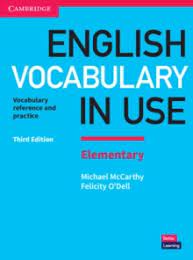
 كلمة جديدة
-
كلمة جديدة
-
 كلمة صعبة
كلمة صعبة

Death. Then Harry became ill. He died last year. He died of a heart attack. The funeral Aceremony or service held shortly after a person's death, Common mistakes Harry is dead [NOT Harry is died or Harry is death].
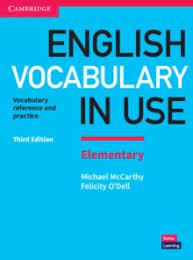
 كلمة جديدة
-
كلمة جديدة
-
 كلمة صعبة
كلمة صعبة

A Head and face. hair. eye. nose. tooth / teeth. ear. lip. neck. mouth.
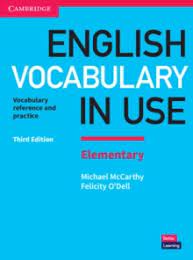
 كلمة جديدة
-
كلمة جديدة
-
 كلمة صعبة
كلمة صعبة

B Arm and leg. shoulder. nail. thumb. finger. hand. arm. leg. knee. foot / feet. toe.
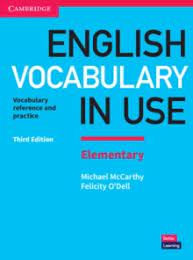
 كلمة جديدة
-
كلمة جديدة
-
 كلمة صعبة
كلمة صعبة

C Rest of body. chest. side. stomach. back. waist. hip. We have skin covering our bodies. D Inside the body. heart. brain. blood. E Pronunciation problems. eye /aɪ/ knee /niː/ . stomach /ˈstʌmək/ heart /hɑːt /. blood /blʌd/ foot /fʊt/ tooth /tuːθ/.
كان هناك طالب من كوريا الجنوبية , يقول أن لديه مشكلة كبيرة في النطق. إنه يعلم أن نطقه ليس جيدًا ولكنه لا يعرف كيف يجعله أفضل. لا يتكلم كثيرا لأنه لا يحب طريقة نطقه.
يقول إنه يقرأ ويسمع اللغة الإنجليزية و يفهمها جيدًا ولكنه يريد أيضًا التحدث جيدًا. يسأل عما إذا كان هناك شيء يمكنه فعله لتحسين نطقه.
قال له المدرس، "حسنًا ، يمكنني إخبارك بشيء عن النطق وكيفية التدرب عليه. أريد أيضًا أن أعلمك تقنية يمكن أن تساعدك في تحسين النطق.
أولاً ، علينا أن نعرف سبب معاناة الطلاب من مشاكل النطق. عندما نتحدث ، علينا أن نحرك أفواهنا. علينا استخدام العضلات في أفواهنا. المشكلة هي أنك عندما تتحدث الإنجليزية ، فأنت تستخدم أحيانًا عضلاتك كما في لغتك الأم. إذن فإن نطقك للغة الإنجليزية يشبه النطق بلغتك الأم.
يحدث هذا للعديد من الطلاب الذين يتعلمون اللغة الإنجليزية. كل طالب تقريبًا لديه نطق مختلف قليلاً عن المتحدثين الأصليين. إنها ليست مشكلة كبيرة لأن الناس عادة يفهمون ما تريد قوله. أنت طالب ومن المنطقي ألا يكون نطقك مثاليًا عند دراسة اللغة الإنجليزية.
ولكن يمكنك العمل على نطقك وتحسينه. هناك تقنية رائعة يمكن أن تساعدك كثيرًا.
اسم هذه التقنية هو التظليل (shadowing). هذه التقنية بسيطة للغاية. عندما تقوم بالتظليل(shadowing) ، فأنت ببساطة تنسخ الصوت الذي تسمعه. عندما يتعلم الأطفال لغتهم الأولى ، فإنهم يقلدون أيضًا ما يسمعونه. ينسخون مايسمعون من ابائهم مرارًا وتكرارًا وبعد فترة من الوقت يكون نطقهم مثاليًا. يمكنك تعلم نطق اللغة الإنجليزية بنفس الطريقة.
يمكنك اخد بعض المقاطع التي ليست سريعة جدًا والتي تفهمها جيدًا. أنت تستمع وتقوم بنسخ ما تسمعه عندما تسمعه.هذا كل شيء ".
ثم قال ، "التظليل (Shadowing ) مفيد أيضًا عندما تستعد لعرض تقديمي وترغب في الحصول على نطق جيد. قبل العرض التقديمي ، يمكنك الذهاب إلى مكان ما حيث تكون بمفردك ويمكنك التظليل (Shadowing ) لمدة 10 دقائق تقريبًا. سترى كيف يساعدك ذلك على الحصول على نطق أفضل أثناء العرض التقديمي ".
عندما تريد أن يكون لديك نطق جيد ، كرر ما تسمعه بعد المتحدثين الأصليين.
مونيكا هي طالبة من ايطاليا. سألت المعلمة مونيكا بعض الأسئلة. المعلمة تعرف مونيكا لأن مونيكا كانت في فصلها قبل عام . كان فصلًا للمبتدئين ولم يستغرق سوى أسبوعين خلال العطلة الصيفية.
عندما تحدثت مونيكا ، كانت لغتها الإنجليزية جميلة. نطقها كان جيدا . وكانت تتحدث بطلاقة .
كانت المعلمة سعيدة للغاية وقالت لمونيكا ، "يجب أن تكون مدرستك في إيطاليا جيدة جدًا."
قالت مونيكا ، "أنا لم أذهب إلى أي مدرسة. أتعلم اللغة الإنجليزية في المنزل. أنا أستخدم التقنيات التي تغلمتها منك. أقوم بالكثير من القراءة وتكرار الكلام اللذي اسمعه بصوت عال (shadowing التظليل ) والتفكير بصوت عالٍ. أحاول التفكير باللغة الإنجليزية أكثر من الإيطالية.
هذه هي الطريقة التي أعمل بها على تحسين لغتي الإنجليزية. لقد ساعدني الأسبوعان اللذان قضيتهما في الصيف الماضي في صفك كثيرًا. لقد أظهرت لي الطريق. أعرف كيف أعمل على تحسين لغتي الإنجليزية كل يوم. هذا هو سبب رغبتي في المجيئ إلى صفك مرة أخرى لأنه قبل عام ، كنت مبتدئًتا ويمكنني الآن التحدث باللغة الإنجليزية. أريد أن أتعلم منك مرة أخرى ".
كانت المعلمة سعيدة لسماعها هذه الكلمات و شكرت مونيكا على عملها الشاق.
تقول المعلمة ، "إن تقنية " التفكير بصوت عالٍ " فعالة للغاية. يجب أن يكون لديك دافع قوي لتعلم اللغة الإنجليزية إذا كنت ترغب في الاستفادة من هذه التقنية.
من الجيد أيضًا معرفة أن هذه التقنية مجنونة بعض الشيء بالنسبة لبعض الناس. ولكن عندما تبدأ في التفكير بصوت عالٍ ، يمكن أن تكون لغتك الإنجليزية أفضل بسرعة كبيرة ".
"حسنًا ، إنه في الواقع امر بسيط للغاية. أنت تفكر بلغتك الأم طوال اليوم كل يوم. هذا طبيعي. الآن ، يمكنك البدء في التفكير باللغة الإنجليزية. وعندما تبدأ في التفكير باللغة الإنجليزية ، يمكنك التفكير بصوت عالٍ. أنت ببساطة تقول ما تعتقده بصوت عالٍ. هذا كل شيء ".
ثم سألت المعلمة مونيكا إذا كان من المناسب لها التحدث عن تجربتها في التفكير بصوت عالٍ.
قالت مونيكا ، "عندما بدأت بهذه التقنية ، لم يكن الأمر سهلاً. لقد بدأت بجمل بسيطة للغاية. على سبيل المثال ، "يمكنني التحدث باللغة الإنجليزية. من الجيد أن أتحدث الإنجليزية. أريد أن أكون أفضل. أنا بحاجة إلى الممارسة كل يوم. لا أعرف الكثير من الكلمات. لكن يمكنني استخدام هذه الكلمات جيدًا. أستطيع أن أقول أفكاري بهذه الكلمات. أستطيع أن أفعل ذلك. هذا عظيم.'
كانت الجمل بسيطة حقًا. لكن في البداية كانت هناك مشكلة واحدة. كان تفكيري باللغة الإيطالية طويلًا ومعقدًا. لم أستطع أن أقول باللغة الإنجليزية بالضبط ما كنت أقوله بالإيطالية. كنت بحاجة إلى إيجاد نموذج أبسط للغة الإنجليزية. كان التفكير بلغة إنجليزية بسيطة هو الجزء الأصعب. لكن بعد مرور بعض الوقت كان من الطبيعي بالنسبة لي أن أفكر باللغة الإنجليزية.
ثم حدث شيء مثير للاهتمام. التقيت بفتات من استراليا. كانت في إجازة في إيطاليا. كنت ما زلت مبتدئًتا ، لكننا بدأنا في التحدث باللغة الإنجليزية. استطعت أن أرى أنني تمكنت من التحدث معها دون مشاكل كبيرة. كانت جملي بسيطة وقصيرة ، لكنني كنت قادرًتا على التحدث. لم أترجم الكلام في نفسي من الإيطالية إلى الإنجليزية.
بعد الالتقاء مع هذه الفتات من أستراليا ، بدأت في استخدام التفكير بصوت عالٍ أكثر. ساعدني هذا الأسلوب كثيرًا في حديثي. ما زلت أستخدمه كل يوم. إنها حقًا تقنية فعالة للغاية ".
ان كنت تريد التحدث باللغة الإنجليزية بطلاقة ، فكر بصوت عالٍ.





